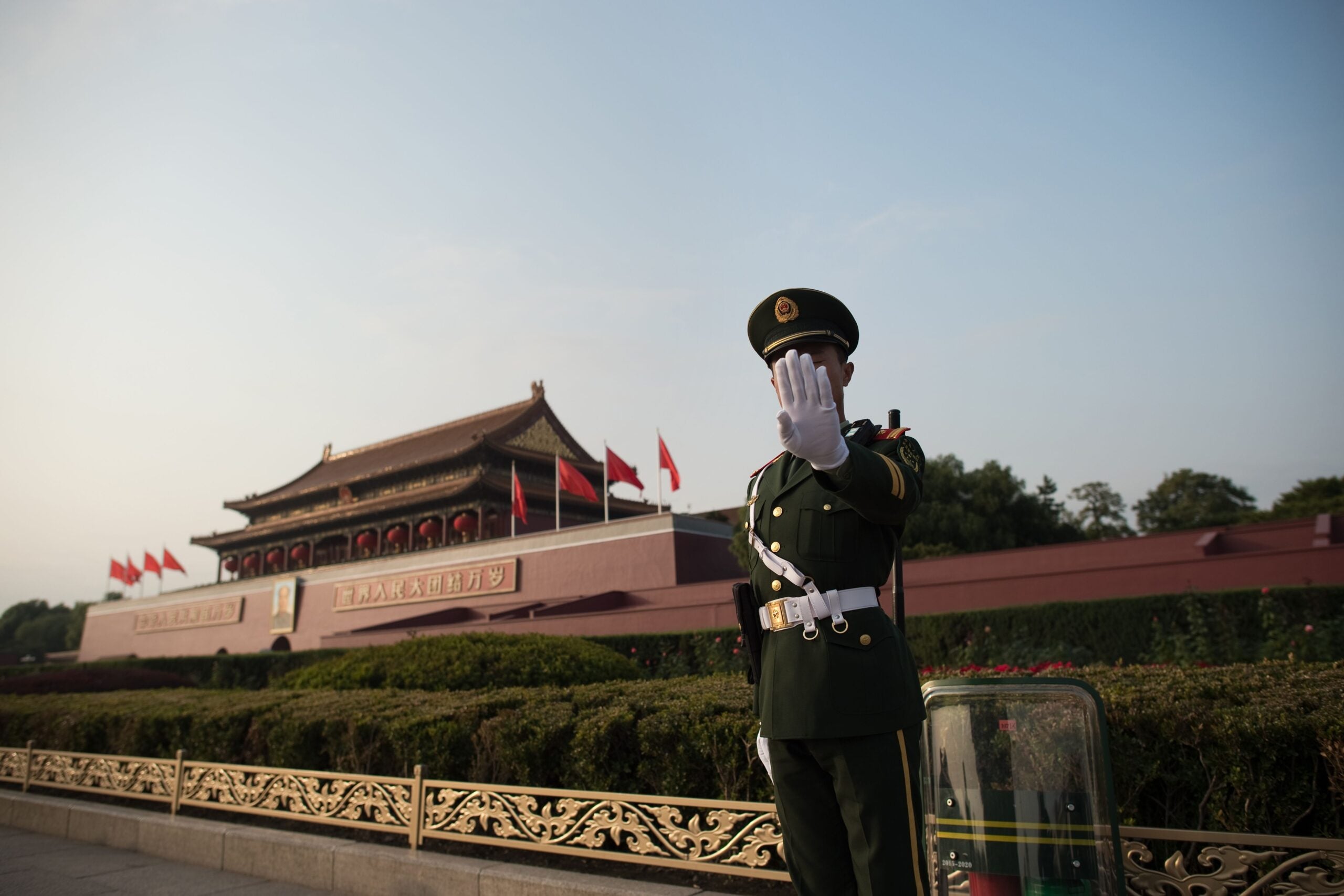
China passed two new laws aimed at countering foreign sanctions amid mounting US and European pressure over trade, technology and human rights. Experts say Beijing’s new stance is the most wide-ranging legal tool to respond to foreign pressure.
China’s top legislature, the National People’s Congress Standing Committee (NPC), passed a new regulation on Thursday titled the “Anti-Foreign Sanctions Law of the People’s Republic of China.” The document stipulates the need to “safeguard national sovereignty, security, and development interests, and protect the legitimate rights and interests of China’s citizens and organisations.”
On the same day, the NPC also passed the “Data Security Law of the People’s Republic of China”. This piece of legislation also points out that “anyone who conducts data processing activities outside the People’s Republic of China that harms the national security, public interests, or the legitimate rights and interests of citizens or organisations of the People’s Republic of China shall be investigated for legal responsibility according to the law.”
According to the Anti-Foreign Sanctions law, individuals or entities involved in drafting or implementing discriminatory measures against China could be put on an anti-sanctions list. Those on the list may be denied a visa or entry into the country and may see their assets in China seized or frozen. They could also be restricted from doing business with entities or people within China.
The law emphasises that if “a foreign country violates international law and the basic norms of international relations, uses various excuses to implement national regulations to contain or suppress China, adopts discriminatory or restrictive measures against Chinese citizens and organisations, or interferes with China’s internal affairs,” Chinese regulators have the right to take “corresponding countermeasures.”
The ban extends to individual company employees and even their spouses and immediate family members.
How well do you really know your competitors?
Access the most comprehensive Company Profiles on the market, powered by GlobalData. Save hours of research. Gain competitive edge.

Thank you!
Your download email will arrive shortly
Not ready to buy yet? Download a free sample
We are confident about the unique quality of our Company Profiles. However, we want you to make the most beneficial decision for your business, so we offer a free sample that you can download by submitting the below form
By GlobalDataThe document also allows Chinese entities and individuals to file a lawsuit in Chinese courts to seek redress or compensation for harm caused by foreign sanctions.
Foreign companies have expressed worries about the dampening impact the new law might have on foreign direct investment (FDI), Reuters reports.
In response to this concern, spokesperson for the Chinese Ministry of Foreign Affairs Wang Wenbin said: “I do not see an inevitable connection between the two. If so, it is the enactment of the Anti-Foreign Sanctions Law, which provides a predictable legal environment and a stable business environment for companies from all over the world to develop in China.”
Wang added: “China always welcomes and supports foreign companies to conduct business and cooperation in China, and we protect their rights and interests in accordance with the law.”
Verdict asked Huawei how the new law may impact its business operations. The company said that it had no official comments on the Anti-Foreign Sanction bill at this stage. However, it added that “as with any government bills/rules, Huawei remains committed to complying with all rules and regulations in each of the 170 countries we operate in globally”.
Verdict also reached out to Apple, Microsoft and Amazon, but did not receive a response at the time of publication.
China data security law reins in tech giants
Meanwhile, the new data security law de facto gives President Xi Jinping the power to shut down tech companies as part of Beijing’s wrest to control data collected by national giants such as Alibaba and Tencent as well as foreign competitors.
The legislation points out that any individual that finds themselves in discordance with the law can expect a fine of up to 500,000 yuan ($78,000). Businesses can be fined up to 2m yuan ($313,000). The relevant authorities also reserve the right to suspend companies or revoke business licenses.
Actions that are deemed to be in violation of “national core data management” and that endanger “national sovereignty, security and development interests” will be hit with a fine ranging from 2m ($313,000) to 10m yuan ($1.6m).
Companies that leak sensitive data abroad can be hit with similar fines and punishments, and those providing electronic information to overseas law enforcement bodies without permission can face financial penalties up to 5m yuan ($782,000) and business suspension.
China’s new laws are the latest and most widespread responses to sanctions imposed by foreign governments.
Earlier this month, US President Joe Biden signed an executive deal that added another 28 Chinese companies to a blacklist, banning US investors from buying or selling publicly traded securities from these companies. In response to the move, China said that it would “take necessary measures to resolutely safeguard the legitimate rights and interests of Chinese enterprises”.
On Tuesday, the US voted 68-32 to approve a sweeping package of legislation intended to boost the country’s ability to counter China’s technology industry. The significant bipartisan support indicates that the desire for a tough stance against China is one of the few sentiments both Republicans and Democrats can get behind in a deeply divided US Congress.
The US and its allies have also increasingly sanctioned Chinese officials to express concern about how China treats its Muslim Uighur minority in the western province of Xinjiang and the pro-democracy activities in Hong Kong.





